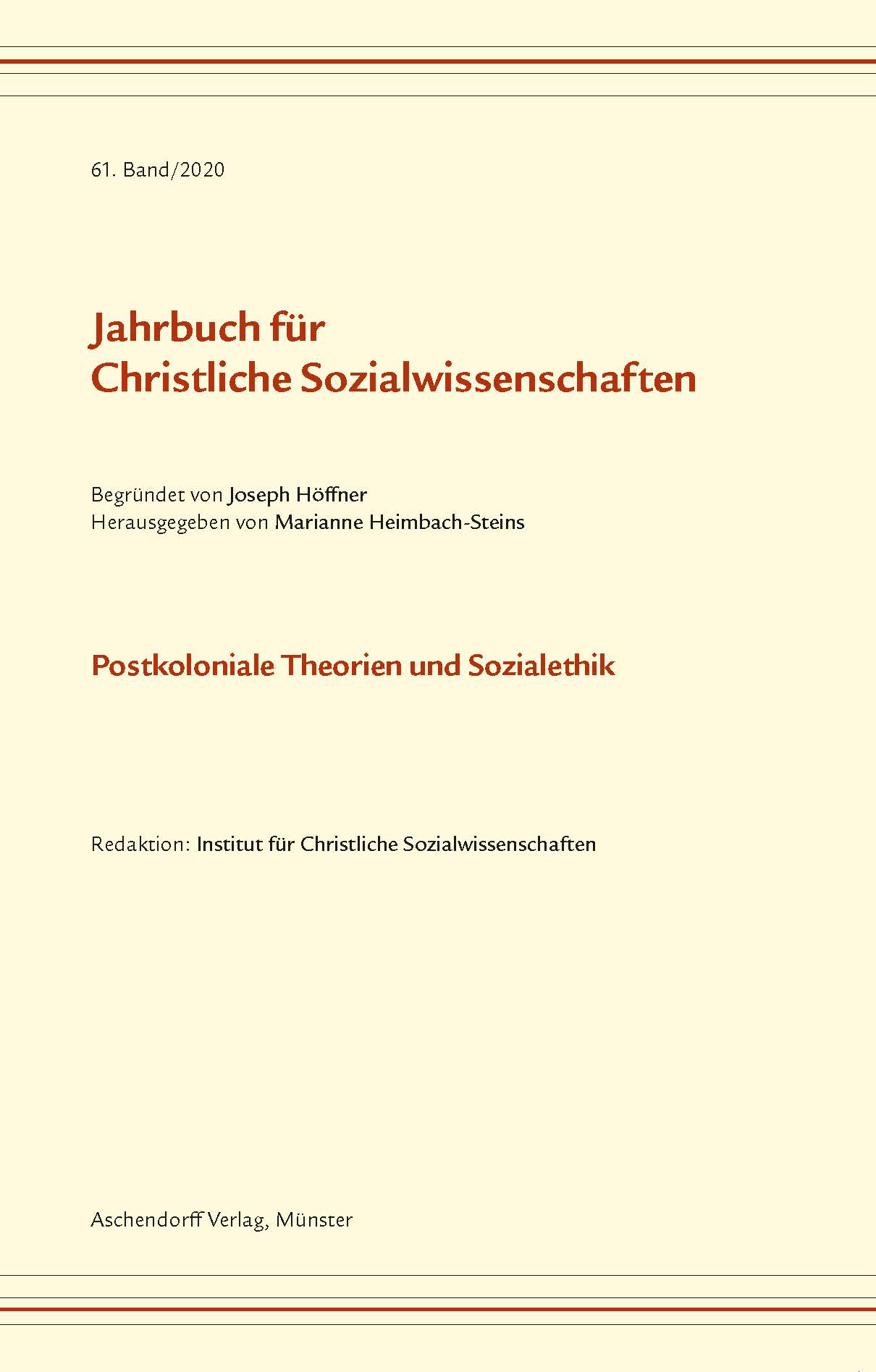Reflexive Repräsentation in Ethik und Politik
Postkoloniale Kritik der theologisch-sozialethischen Theoriebildung
DOI:
https://doi.org/10.17879/jcsw-2020-2980Abstract
The essay shows that and how the postcolonial perspective for theological social ethics can be further in terms of fundamental ethical, political ethical and scientific theory. The starting point is the postcolonial criticism of human rights according to Gayatri C. Spivak. The special achievement of postcolonial studies lies in the fact that, with the concept of Subalternity and the associated Othering, it provides analytical instruments that draw attention to a heightened form of Exclusion. It is an exclusion, more precisely an invisibility of people and groups through processes of Representation. Representation, even if it is done with the best of intentions, makes it impossible for those affected by injustice to be able to publicly express their own direct assessment of their own life situation or to be heard in public. In this way, drafts of advocacy, be it on an ethical, political or scientific level, can only ever be used in a reflected manner. The post-colonial reflection on representation therefore first takes a critical look at those who hold a privileged position, who „righting wrongs“ and who have the resources to be advocates for human rights.

